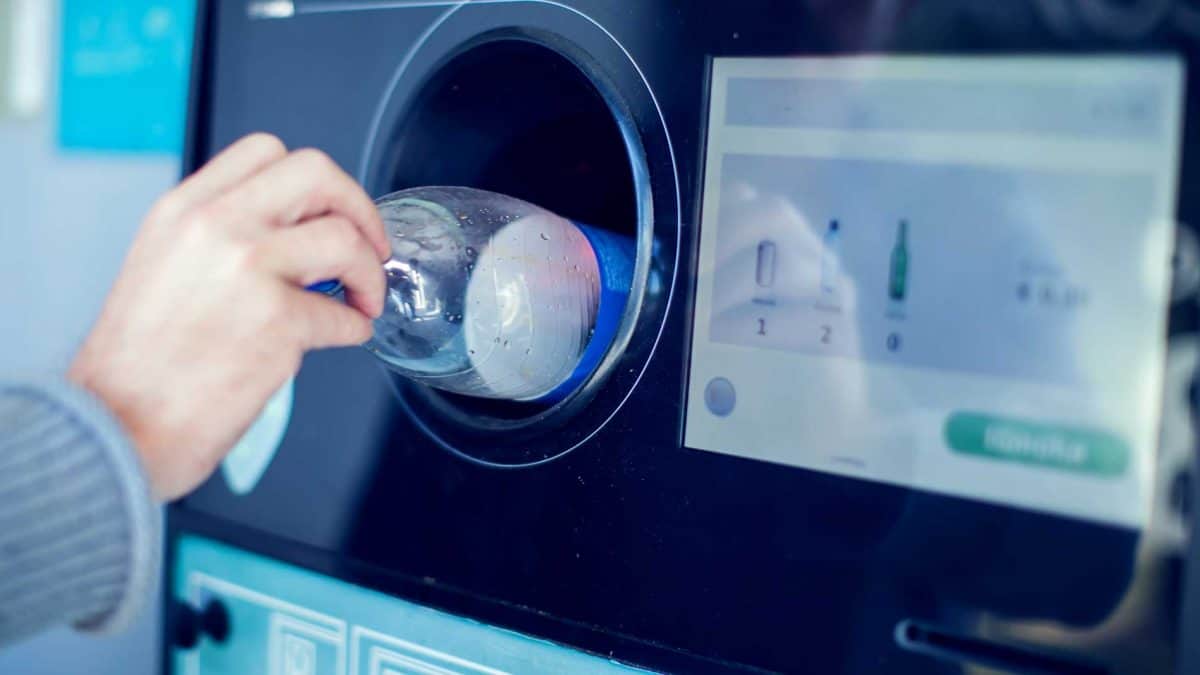Natural Mineral Waters Europe (NMWE), UNESDA Soft Drinks Europe and Zero Waste Europe call on the EU to facilitate the beverage industry’s transition to circularity by developing a legal framework for setting up new efficient DRS for beverage packaging.
Natural Mineral Waters Europe (NMWE), UNESDA Soft Drinks Europe and Zero Waste Europe (ZWE) urge the EU to acknowledge the role of Deposit Refund Systems (DRS) and support the establishment of minimum requirements for new DRS in the revision of the EU Packaging and Packaging Waste Directive. They also reiterate their full commitment to collaborate with policymakers and local stakeholders in the implementation of efficient industry-wide collection schemes across the EU.
Accelerating the transition to a circular economy, as set out in the EU Circular Economy Action Plan, is a collective objective and DRS are part of the solution to contribute to it and achieve the target to make all packaging reusable and recyclable by 2030. In addition, the EU’s Single Use Plastics Directive imposes a 90% collection rate for plastic beverage bottles by 2029 and a minimum of 25% recycled plastic in PET bottles from 2025 (30% from 2030 in all beverage bottles).
‘’Given current collection performances across the EU, many EU Member States are unlikely to achieve the EU collection targets. This is why we support well-designed DRS as one of the most efficient options for meeting the collection and recycled content targets set in the EU’s Single Use Plastics Directive but also as an opportunity to create a closed-loop recycling system guaranteeing the material is returned and recycled in new beverage containers”, says Nicholas Hodac, UNESDA’s Director General.
“DRS have not only delivered high collection rates for beverage packaging in countries where they are in place, but they also have the benefit of providing high-quality food-grade recycled material in a clean single stream. They can also contribute towards the EU’s climate objectives, for example by reducing the need for virgin materials thanks to closed loop recycling. However, in spite of their excellent track record, the EU Packaging and Packaging Waste legislation does not currently address DRS in any way, nor does it secure closed loop recycling for food-grade materials”, continues Patricia Fosselard, NMWE’s Secretary General.
The European Commission can play a crucial role in filling this gap by developing minimum requirements to assist EU Member States to provide a strong framework for the establishment of efficient new DRS. “Such minimum requirements should build on those for Extended Producer Responsibility schemes laid down in the Waste Framework Directive. Setting up this guidance at EU level could help ensure that DRS infrastructure across Member States also accommodates where possible, from the outset, refillable packaging, in line with the EU goals on packaging waste prevention and reuse. With a swift adoption of those minimum requirements, we are confident that we can move faster towards meeting both circular economy and climate objectives”, says Joan Marc Simon, Director of Zero Waste Europe.
Key principles for setting up efficient new Deposit Refund Systems for beverage packaging
Material scope:
- DRS should include relevant beverage packaging types and sizes (up to three liters).
- New DRS should accommodate refillable beverage packaging, where possible from the outset.
Return Rates:
- DRS should be designed to achieve at least 90% return rates for each packaging material.
Governance:
- DRS should be set up and run by the obliged industry in a not-for-profit structure as a Central Deposit Management Organisation (CDMO) and be subject to a transparent, reporting and verification system.
- Retailers play a critical role in the redemption process and therefore should join the governance of the CDMO to ensure optimised implementation and management of DRS.
- Domestic legislation should be developed to clearly outline elements such as the obligations on producers, the take-back obligations of retailers, the powers of the CDMO, and Government measures to minimise fraud should be enacted.
System Design:
- The DRS system should be set up with cost efficiency as one of the key principles.
- Revenues, such as unredeemed deposits, should stay in the system to cover both setup and operational costs.
- Costs and revenues should be allocated back to specific materials, and cross-subsidisation of materials is avoided.
- Consumer education and awareness campaigns should be included in the costs of the system.
- Each country’s CDMO shall define the variable levels of deposit by taking into account the local context and incentivising a “bring back” culture.
- All participants in the system should collaborate for the most optimal and cost-efficient implementation and be fairly compensated for the net costs incurred from dealing with the logistics of the system.
Redemption Points:
- The redemption system, both in store and out of home, should be convenient for consumers, it should also be effective and efficient, including exploring digital technology options where relevant.
- Retailers should be mandated to take back all deposited packaging materials on the market, subject to possible space limitations for small operators.
- Where reverse vending machines or other DRS reverse technology is used, minimum technical requirements should be defined and followed by the CDMO.
Access to recycled materials:
- Beverage producers, as obliged industry, should be given a fair and legitimate access to recycled materials which are captured by DRS, including via a “priority access” or “right of first refusal” for food grade recycled content.
Packaging 360 is a comprehensive knowledge sharing ecosystem for the Indian packaging industry. Our services include an online content platform to deliver news, insights and case studies; organising conferences seminars and customised training; Providing Bespoke Project Consulting, Market Research and Intelligence.







